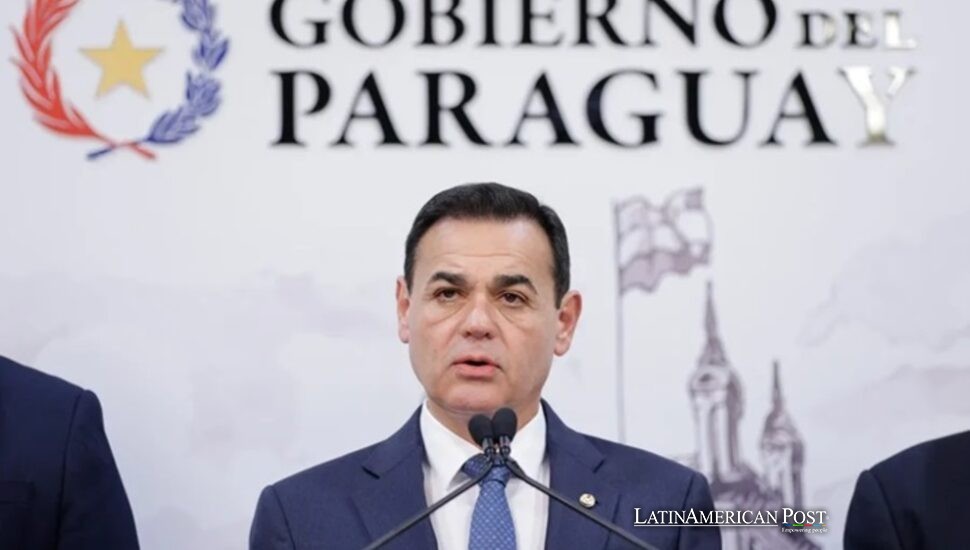Brazil Spy Scandal: Itaipú Dam Tensions, Diplomatic Moves

Paraguay stopped talks with Brazil about Itaipú, a large hydroelectric dam after some facts became known. Brazilian intelligence personnel gave orders for secret monitoring. This break endangers established links between both countries. It creates difficulty for discussions on energy costs – and trust between the two nations.
Espionage Claims and Diplomatic Fallout
News on secret Brazilian actions caused anger in Asunción. Paraguay’s foreign minister declared a formal complaint, Brazil’s ambassador received a summons, and talks on the vital Annex C of the Itaipú treaty stopped. Officials stated that intelligence staff entered the computer networks of Paraguayan leaders during Bolsonaro’s time in office, focusing on facts tied to dam charges and the financial conditions of the shared hydroelectric site.
Paraguayan leaders see the alleged access as an evident strike at the nation’s control. It violates global rules and damages the shared reliance needed for successful talks. In addition, the foreign minister called Brazil’s access “interference in our internal affairs” since no state must watch another state’s officers alone. As a result, Paraguay has recalled its own ambassador from Brasilia for consultations—an unusual step that highlights how seriously Asunción regards the matter.
Even with these difficulties, leaders in Brazil, under President Lula da Silva, denied involvement now in secret actions – they stated these actions concluded in March 2023. They affirmed that the secret intelligence process had begun and was sustained during Bolsonaro’s leadership, but the current government halted it. Paraguay’s foreign office wants complete details. The office seeks to learn who was monitored, what details were obtained, and its impact on talks. After that – Paraguayan representatives suggest – the countries can proceed with talks about “Itaipú’s framework.”
Itaipú Treaty and Energy Deadlock
Itaipú, one of the world’s most powerful hydroelectric dams, sits on the Paraná River, straddling the border between Paraguay and Brazil. The 1973 treaty gave each country half the dam’s generated power. Because Paraguay’s consumption is much lower, it sells its surplus electricity to Brazil—historically under conditions many Paraguayans feel are heavily slanted toward Brazilian interests. Annex C of the treaty defines these financial and contractual obligations, including the preferential rates at which Paraguay must offload its share. Over time, that annex has been a continual source of disagreement, as Asunción claims it has little choice but to accept prices determined by its giant neighbor.
Negotiators aimed to revise that arrangement, aiming for a fairer system. In 2022, both governments agreed to raise the tariffs Brazil pays—an important first step. However, many details remain unresolved. Paraguay wants to market its excess power at competitive rates, whether to regulated or unregulated segments of the Brazilian grid. Meanwhile, Brazil needs stable, cost-effective energy to power its industrial sectors. Before the espionage scandal, the two sides seemed close to finalizing new terms by the end of May. Now, that timeline has been derailed.
For Paraguay, halting negotiations is a strategic move. Officials argue that trust, not just economics, underlies every aspect of a transboundary project such as Itaipú. If Brazil were gathering confidential information about negotiating positions or internal policy, it would place Asunción at a disadvantage. Faced with a perceived betrayal, the logical response, they say, is to demand clarity. If or when those clarifications satisfy them, they may feel secure enough to restart the dialogue. Nevertheless, the indefinite suspension injects uncertainty into regional energy markets—particularly if the stalemate stretches on.
Major infrastructure deals often depend on stable political cooperation. For decades, Itaipú symbolized how two nations could collaborate on an enormous project for mutual benefit. At present the dam grew to a key issue in a major diplomatic quarrel. Because espionage revelations arrived in papers of both nations, public feelings in Paraguay could back a firmer position – its leaders must not yield without getting gains or a regret from Brasilia.
Potential Paths to Resolution
Although the situation looks tense, the importance of Itaipú to both countries suggests resolution efforts will intensify soon. Paraguay’s trade minister showed an expectation that a complete account from Brazil would permit negotiation continuation. The dam offers close to 14,000 megawatts of fixed ability – this fuels residences and plants across a sizable portion of South America. Each country depends on the deal to preserve energy distribution and protect the area’s financial vigor.
To lessen the trouble, Brazil’s foreign ministry said Lula da Silva’s new governing group did not know about current observation efforts. The ministry asserted the project stopped when overseers detected it. Some people in Paraguay regard such utterances as inadequate – they want more. They question whether any collected data has already shaped Brazil’s negotiation tactics or whether pieces of information remain in the hands of certain Brazilian agencies.
On the Brazilian front, clarity on how the espionage program started could help rebuild trust. If a thorough investigation reveals this was an isolated or unauthorized action from certain intelligence officials, that might alleviate some concerns in Asunción. Should the revelations, however, uncover deeper or more extensive infiltration, the blow to confidence might be harder to repair.
Another factor is internal Brazilian politics. Bolsonaro now faces legal fights plus assertions of planning a takeover after losing the election in 2022. The spy work increases the issues at hand. Should high-level people be allowed to spy in other nations, demands for responsibility will grow in Brasilia.
If discussions halt plus a recent bilateral agreement encounters issues, each country faces lower incomes. Paraguay aims for improved conditions to sell its excess power to Brazil. Because Brazil benefits from a dependable Itaipú energy supply at an appropriate price, it helps growth – a genuine requirement. Given these mutual interests, eventually, the political cost of an unresolved conflict might prompt a compromise. Perhaps senior envoys will convene a high-level meeting, or an international mediator might step in to help both parties find common ground.
Regardless, short-term uncertainty is likely. Observers expect no quick fix to the trust gap. When no novel accord materializes, current stipulations stay as they are – a result that keeps things unchanged yet possibly cultivates bitterness in Paraguay. Further conflict could goad Asunción toward researching different power alliances or questioning particular treaty points – but the latter action introduces the hazard of a drawn-out judicial fight.
Also Read: Colombia’s ELN Declines Peace: Tensions, War, and Uncertainty
In the coming weeks, all eyes will remain on whether Brazil can deliver a credible, transparent explanation. If that is forthcoming, the region’s largest and smallest economies might restore their partnership. If not, the espionage scandal might overshadow the positives of a joint infrastructure marvel that once served as a blueprint for cross-border cooperation in Latin America.





